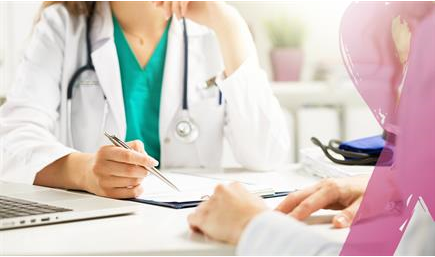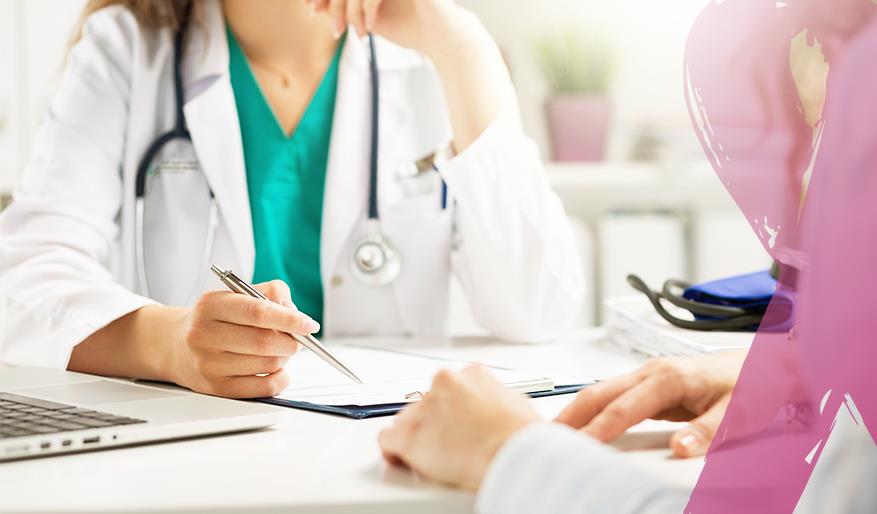Our Doctors
Meet all the doctors from Cleveland Clinic Abu Dhabi.
View Doctors
Who should get screened, and what to expect during and after a mammogram

Breast cancer screening involves an X-ray called a mammogram to test people who appear healthy, for any signs of cancer development. Its aim is to catch cancer at an early stage.
By undergoing routine breast cancer screening, you are taking a proactive, preventative step that could detect cancers before any symptoms appear and when they are too small to be seen or felt. When found at this early stage, cancer is a lot easier to treat successfully and survival rates are much higher.
Dr. Stephen Grobmyer, Chair of the Oncology Instituteat Cleveland Clinic Abu Dhabi explains, “Breast cancer is the most common cancer among women around the world. In the UAE, it is the leading cause of female cancer deaths and women are affected by the disease at a younger age than the global average. Although a lot has been done to raise awareness of the disease, it is important to point out that routine screening really can save lives.”
“We do a lot of work to make women aware of the signs of breast cancer and promote self-examination to identify any abnormalities or lumps. But mammography is a routine check performed on women with no symptoms. The aim is to find cancers before lumps are noticeable, when cancer is at the earliest stage, and therefore easier to treat.”
The Department of Health recommends that women should have a mammogram every 2 years from the age of 40. However, this should be more frequent in some women. Dr. Grobmyer explains, “If breast cancer runs in the family, or you have an inherited genetic mutation, then we recommend that screening starts earlier than 40, as this may put you at higher risk.”
There are also many other factors that can increase your chance of developing breast cancer, which you can control. Maintaining a healthy weight, keeping physically active and moderating intake of alcohol have all been proven to reduce your risk of developing the disease.
Breast cancer screening is performed using an X-ray called a mammogram. Your breast is placed on the x-ray machine and gently compressed between two plates. It can be slightly uncomfortable, but it does not hurt. Female technicians will be in the room to assist and guide you. Two images are captured, one from the top and one from the side. The whole procedure takes only a matter of minutes to perform.
A doctor will look at the mammogram images produced for any signs of abnormalities. In some cases, you may be called back for further assessment, but this doesn’t necessarily mean you have breast cancer. It may be that the images produced were unclear and need to be taken again.
If your doctor does notice anything that requires further investigation, then another mammogram, called a diagnostic or magnified mammogram, will be performed. The aim of this is to enable the doctor to look more closely at a particular area of the breast. If your doctor feels that further investigations are still needed, then you may be sent for an MRI, ultrasound, or biopsy, all of which are designed to offer a fast and accurate explanation of any concerns or abnormalities.
Dr. Grobmyer adds, “The Breast Health & Cancer Program at Cleveland Clinic Abu Dhabi, a breast cancer screening and diagnosis center authorized by the Abu Dhabi Department of Health, offers a full range of investigative and diagnostic services in one place. This means results are immediate for your peace of mind. If you are called back for further investigation, try not to worry as around 7% of all mammograms require further investigation, and most do not lead to a cancer diagnosis.
If further investigations do reveal that you have breast cancer, then it is very likely that it has been found at an early stage, and we will be able to treat it more effectively.”
“If you are over 40, or you have a family history of breast cancer, or you fit into any of the high-risk categories mentioned above, talk to your doctor today about breast cancer screening.”